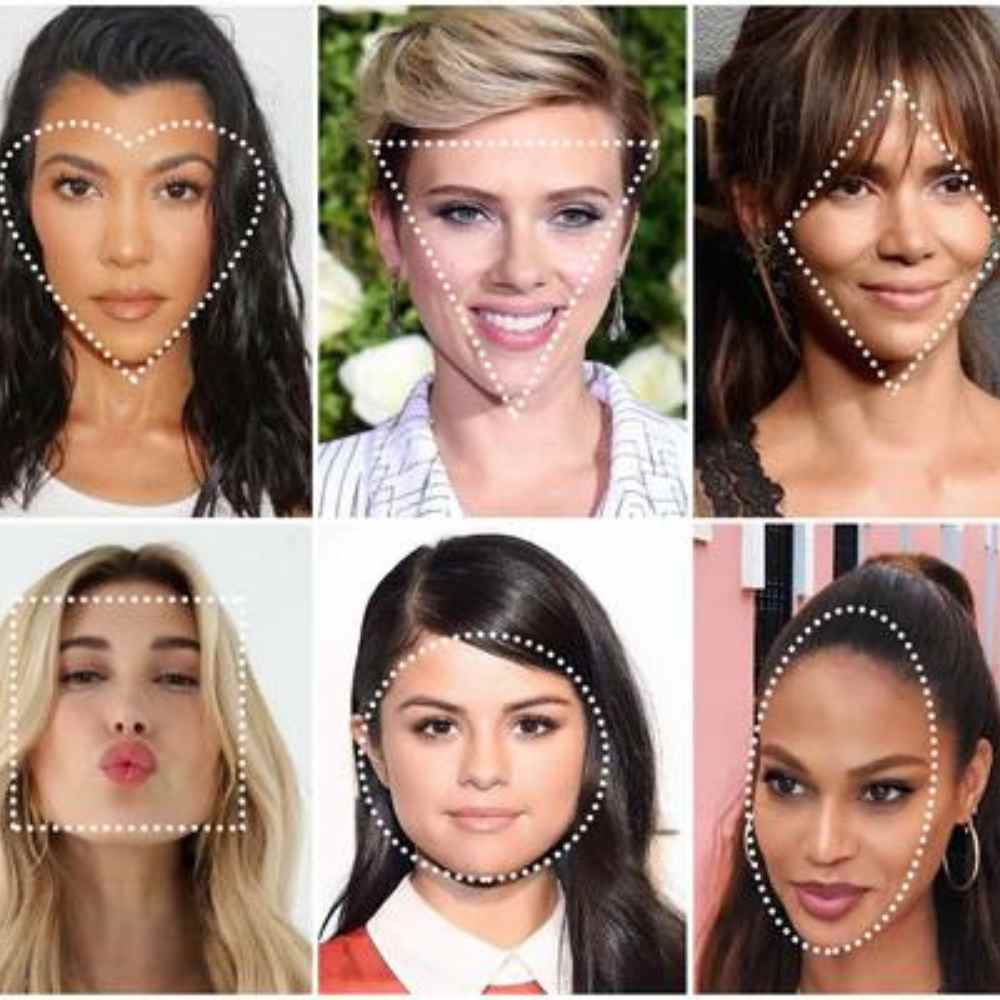
The Aging Game: Which Face Shape Ages the Worst?
Aging is an inevitable part of life, and it affects us all in different ways. From fine lines to wrinkles, sagging skin to loss of elasticity, the signs of aging can vary depending on a range of factors.
One such factor that often goes unexplored is face shape. Have you ever wondered if your face shape can influence how you age?
In this article, we delve into the intriguing world of facial aging and explore which face shapes may appear to age the toughest. Let's get started.
Defying the Aging Clock
The aging process is a complex interplay between genetics, lifestyle choices, and environmental factors.
It's fascinating how no single face shape can be definitively labeled as the worst at aging, but there are some intriguing common observations that are worth exploring in more detail. Let's delve into different face shapes and how they age.

Oval Face Shape
Oval shaped faces are often considered the most balanced and versatile face shape. Oval faces tend to age gracefully due to the even distribution of facial fat.
Wrinkles and sagging are generally less noticeable in individuals with an oval face shape. Their naturally balanced proportions contribute to a youthful appearance that stands the test of time.
Round Face Shape
Round faces, characterized by soft curves and fullness, can also age well. The youthful plumpness of round faces can help disguise signs of aging like wrinkles around the eye and cheek area.
However, it's worth noting that weight gain can cause the appearance of sagging over time. Maintaining a healthy lifestyle becomes crucial for round-faced individuals to maintain their youthful glow.
Square Face Shape
Square shaped faces are known for their strong, defined features. While these features can remain striking with age, lines around the jaw and mouth can become more noticeable as the skin loses elasticity.
The symmetrical nature of square faces can contribute to an age-defying appeal, but diligent skincare routines and facial exercises can help combat aging signs in these individuals.
Heart Face Shape
Heart-shaped faces, with wider foreheads and narrower chins, tend to age well overall. The broad forehead may show some signs of aging, but this face shape maintains a youthful appearance.
The naturally defined cheekbones and balanced proportions of a heart shaped face contribute to a timeless beauty that can withstand the passage of time.
Long Face Shape
People with long faces may notice more prominent signs of aging, such as forehead wrinkles and sagging in the lower part of the face.
However, the key to aging gracefully with this face shape lies in maintaining good skin care and hydration. Nurturing the skin with proper care can help mitigate the effects of aging and maintain a radiant complexion.
Diamond Face Shape
Diamond faces, characterized by high, prominent cheekbones, can make individuals appear younger. However, they may notice more pronounced sagging in the lower part of the face as they age.
Implementing facial exercises and incorporating skincare routines that focus on firming and tightening can help combat the effects of aging in this face shape.
Triangular Face Shape
Triangular faces, shaped like an upside down triangle, can experience visible sagging around the jawline as they age.
Maintaining a healthy lifestyle, including regular exercise and a balanced diet, can help mitigate these effects. Strengthening the underlying muscles and nourishing the skin can contribute to a more youthful appearance.
Understanding how different face shapes age can provide valuable insights into the aging process and guide individuals in taking proactive steps to maintain a youthful appearance.
Embracing a holistic approach that combines skincare, healthy habits, and self-care can help individuals age gracefully and confidently, regardless of their face shape.

Factors that Influence Facial Aging
While your face shape does play a role in how you age, there are several other factors that significantly influence the aging process. These factors include:
- Genetics: Your family history can impact how you age, including when and how certain signs of aging appear. The genes you inherit can affect the production of collagen and elastin, which are essential proteins for maintaining youthful skin.
- Sun Exposure: Prolonged sun exposure without adequate protection can lead to premature aging, regardless of face shape. UV rays from the sun can damage the collagen and elastin fibers in the skin, causing wrinkles, age spots, and a loss of elasticity.
- Lifestyle: Healthy habits such as a balanced diet, regular exercise, and not smoking can help slow down the aging process. A diet rich in antioxidants, vitamins, and minerals can nourish the skin and support its natural repair mechanisms. Exercise promotes blood circulation, which can deliver nutrients to the skin and improve its overall health. Smoking, on the other hand, accelerates aging by reducing blood flow and causing oxidative stress.
- Skincare Routine: A consistent skincare routine that includes moisturizing and sun protection is vital in maintaining youthful skin. Moisturizers help to hydrate the skin and prevent dryness, which can make wrinkles more noticeable. Sun protection is crucial to shield the skin from harmful UV rays and prevent sun damage.
- Stress: Chronic stress can accelerate the aging process, leading to the early appearance of fine lines and wrinkles. Stress hormones like cortisol can break down collagen and elastin, which can result in sagging and dull-looking skin. Managing stress through relaxation techniques, exercise, and self-care can help maintain a youthful appearance.
- Environmental Factors: Pollution and harsh environmental conditions can contribute to skin damage and aging. Air pollution, cigarette smoke, and other environmental toxins can generate free radicals in the skin, causing oxidative stress and accelerating the aging process. Protecting the skin with antioxidants and minimizing exposure to pollutants can help mitigate the effects of these environmental factors.
By understanding these various factors and taking proactive steps to address them, you can better navigate the aging process and maintain healthier, more youthful-looking skin for longer.
The Takeaway
Ultimately, there's no definitive answer to which face shape ages the worst because aging is a highly individualized process.
A person's genetics, lifestyle, skincare routine, and environmental exposure play crucial roles in how they age. Rather than fixating on face shape, it's more important to focus on maintaining a healthy lifestyle and adopting a skincare routine that works for you.
Aging is a natural part of life, and every face tells a unique story. Embrace the journey and age with confidence, knowing that your life experiences and the wisdom you've gained are far more important than any fine lines or wrinkles that may appear along the way. Remember, it's not about how you age; it's about how you live.

















